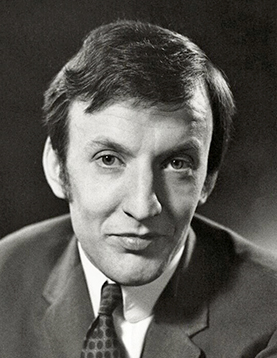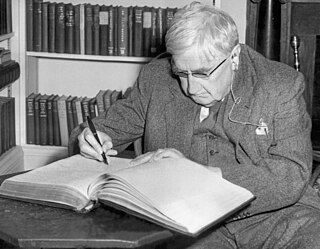Related Research Articles

The flugelhorn, also spelled fluegelhorn, flugel horn, or flügelhorn, is a brass instrument that resembles the trumpet and cornet, but has a wider, more conical bore. Like trumpets and cornets, most flugelhorns are pitched in B♭, though some are in C. It is a type of valved bugle, developed in Germany in the early 19th century from a traditional English valveless bugle. The first version of a valved bugle was sold by Heinrich Stölzel in Berlin in 1828. The valved bugle provided Adolphe Sax with the inspiration for his B♭ soprano (contralto) saxhorns, on which the modern-day flugelhorn is modelled.

"Penny Lane" is a song by the English rock band the Beatles that was released as a double A-side single with "Strawberry Fields Forever" in February 1967. It was written primarily by Paul McCartney and credited to the Lennon–McCartney songwriting partnership. The lyrics refer to Penny Lane, a street in Liverpool, and make mention of the sights and characters that McCartney recalled from his upbringing in the city.

Sir Richard Rodney Bennett was an English composer of film, TV and concert music, and also a jazz pianist and occasional vocalist. He was based in New York City from 1979 until his death there in 2012.

Maurice Harrison Murphy was a British musician who was principal trumpet of the London Symphony Orchestra from 1977 to 2007.
Gordon Percival Septimus Jacob CBE was an English composer and teacher. He was a professor at the Royal College of Music in London from 1924 until his retirement in 1966, and published four books and many articles about music. As a composer he was prolific: the list of his works totals more than 700, mostly compositions of his own, but a substantial minority of orchestrations and arrangements of other composers' works. Those whose music he orchestrated range from William Byrd to Edward Elgar to Noël Coward.
Alan Ridout was a British composer and teacher.
English Folk Song Suite is one of English composer Ralph Vaughan Williams' most famous works. It was first published for the military band as Folk Song Suite and its premiere was given at Kneller Hall on 4 July 1923, conducted by Lt Hector Adkins. The piece was then arranged for full orchestra in 1924 by Vaughan Williams' student Gordon Jacob and published as English Folk Song Suite. The piece was later arranged for British-style brass band in 1956 by Frank Wright and published as English Folk Songs Suite. All three versions were published by Boosey & Hawkes; note the use of three different titles for the three different versions. The suite uses the melodies of nine English folk songs, six of which were drawn from the collection made by Vaughan Williams' friend and colleague Cecil Sharp.
Four Scottish Dances (Op.59) is an orchestral set of light music pieces composed by Malcolm Arnold in 1957 for the BBC Light Music Festival.

Crown Imperial is an orchestral march by William Walton, commissioned for the coronation of King George VI in Westminster Abbey in 1937. It is in the Pomp and Circumstance tradition, with a brisk opening contrasting with a broad middle section, leading to a resounding conclusion. The work has been heard at subsequent state occasions in the Abbey: the coronation of Queen Elizabeth II in 1953, the wedding of Prince William in 2011 and the coronation of King Charles III in 2023. It has been recorded in its original orchestral form and in arrangements for organ, military band and brass band.
Ralph Vaughan Williams's Symphony No. 3, published as A Pastoral Symphony and not numbered until later, was completed in 1922. Vaughan Williams's inspiration to write this symphony came during World War I after hearing a bugler practising and accidentally playing an interval of a seventh instead of an octave; this ultimately led to the trumpet cadenza in the second movement.

The Symphony No. 9 in E minor was the last symphony written by the English composer Ralph Vaughan Williams. He composed it during 1956 and 1957, and it was given its premiere performance in London by the Royal Philharmonic Orchestra conducted by Sir Malcolm Sargent on 2 April 1958, in the composer's eighty-sixth year. The work was received respectfully but, at first, without great enthusiasm. Its reputation has subsequently grown, and the symphony has entered the repertoire, in the concert hall and on record, with the majority of recordings from the 1990s and the 21st century.

The piccolo trumpet is the smallest member of the trumpet family, pitched one octave higher than the standard B♭ trumpet. Most piccolo trumpets are built to play in either B♭ or A, using a separate leadpipe for each key. The tubing in the B♭ piccolo trumpet is one-half the length of that in a standard B♭ trumpet. Piccolo trumpets in G, F, and even high C are also manufactured, but are rarer.
David C. Sampson is an American contemporary classical composer.
The Banks of Green Willow is a piece of orchestral music by British composer George Butterworth. It was composed in 1913, is written in the key of A major, and is around six minutes long.
David Frederick Stock was an American composer and conductor.

The trumpet repertoire consists of solo literature and orchestral or, more commonly, band parts written for the trumpet. Tracings its origins to 1500 BC, the trumpet is a musical instrument with the highest register in the brass family.
Arthur Eckersley Butterworth, was an English composer, conductor, trumpeter and teacher.
William Walton's music for the 1944 film Henry V has been arranged by several musicians for non-cinematic performances. The first suite was arranged in 1945 by the conductor Malcolm Sargent. In 1963 Muir Mathieson, who had conducted the music for the original film soundtrack, arranged a longer suite, and in 1988 the musicologist Christopher Palmer constructed an hour-long "Shakespeare Scenario" using most of the music Walton composed for the film.
References
- 1 2 "2011 January to June". The Dead Rock Stars Club. Retrieved 8 May 2011.
- 1 2 3 Gorrie, Jon (1 May 2011). "David Mason: A trumpet icon has died". Brass Musician. Archived from the original on 5 May 2011. Retrieved 5 May 2011.
- 1 2 "David Mason". The Daily Telegraph. London. 11 May 2011. Retrieved 9 July 2011.
- ↑ Millington, Barry (8 June 2011). "David Mason obituary". The Guardian. London. Retrieved 9 July 2011.
- 1 2 McAneney, Anne (May 2007). "David Mason". The Brass Herald. No. 18. p. 38. ISSN 1746-1472.
- ↑ "Paul Sharp - Natural Trumpet Professor". rcm.ac.uk.
- ↑ Cunnane, Sarah (2 June 2011). "Obituary: David Mason 1926-2011" . timeshighereducation.com.
- ↑ Ingham, Chris (2003). The Rough Guide to the Beatles. London: Rough Guides. p. 245. ISBN 1-84353-140-2.
- ↑ Miles, Barry & Charlesworth, Chris (1998). The Beatles: A Diary. London: Omnibus Press. p. 228. ISBN 0-7119-6315-0.
- ↑ Steele-Perkins, Crispian (2001). The Trumpet. Menuhin Music Guides. London: Kahn & Averill. p. 120. ISBN 1-871082-69-2.
- ↑ Young, Neville (20 August 2011). "The piccolo trumpet solos in the Beatles' "Penny Lane"". Neville Young's Trumpet Page.
- ↑ Martin, George (1979). All You Need Is Ears. New York City: St Martin's Press. p. 201. ISBN 0-312-11482-6.